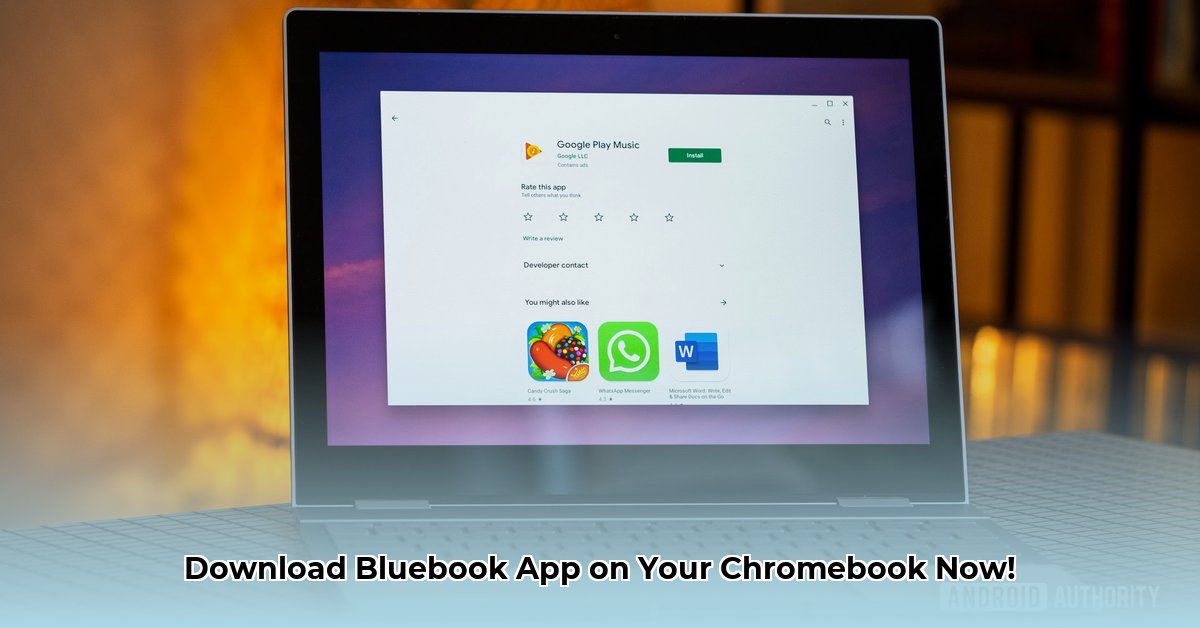
This guide provides a step-by-step process for downloading and deploying the College Board's Bluebook app on Chromebooks for standardized testing in schools. It includes troubleshooting tips and best practices to ensure a smooth testing experience. For more detailed information, see the Chromebook Bluebook guide.
Understanding Bluebook App Deployment on Chromebooks
Deploying the Bluebook app differs from typical app installations. It requires administrator access through the Google Admin console (a web-based management tool for Google Workspace accounts) to configure the Chromebook for secure, dedicated use during testing. This "kiosk mode" restricts access to only the Bluebook app, preventing students from accessing other applications or websites.
Step-by-Step Guide: Deploying Bluebook on Chromebooks
Follow these steps carefully for successful deployment.
Access the Google Admin Console: Log in using your school's Google Admin credentials. Your school's IT administrator will have these credentials.
Locate Bluebook Deployment Instructions: The College Board provides detailed instructions, including specific URLs and codes required for installation. Keep these readily available throughout the process.
Configure Kiosk Mode: This critical step restricts the Chromebook to only run the Bluebook app. The College Board’s instructions will guide you through this process. This ensures a secure testing environment.
Test the Deployment: Before widespread deployment, test the installation on a few Chromebooks. This allows for early detection and resolution of any issues, preventing disruptions on test day. A small-scale test greatly reduces the risk of widespread issues.
Verify Network Connectivity: Ensure a strong and reliable Wi-Fi network is in place. A weak connection can severely impact app performance. Consider using a wired network (Ethernet) connection if Wi-Fi reliability is a concern.
Communicate with Stakeholders: Inform teachers and students about the deployment process, expected behavior, and potential troubleshooting steps. Clear communication minimizes confusion and ensures a smoother testing experience.
Troubleshooting Common Issues
Even with careful planning, problems may arise. Here's how to address common challenges:
Bluebook Crashes: Begin by checking for app updates. If the issue persists, contact College Board support for assistance.
App Loading Issues: Verify that all codes and URLs from Step 2 accurately match the College Board's instructions, paying close attention to detail to prevent errors.
Network Connectivity Problems: Confirm strong Wi-Fi or Ethernet connectivity throughout the testing environment. Consult with your school's IT team if necessary.
Chromebook Compatibility Issues: Ensure your Chromebooks meet the minimum system requirements specified by the College Board. Outdated devices may cause app instability.
Preparing for a Smooth Testing Experience: A Checklist
Prioritize these considerations for enhanced testing success:
| Item | Description | Importance |
|---|---|---|
| Chromebook Compatibility | Test Bluebook on various Chromebook models to ensure compatibility across the board. | Very High |
| Network Infrastructure | Verify a reliable network throughout testing locations. Implement a backup network strategy (e.g. Ethernet) for redundancy. | Very High |
| IT Team Training | Provide comprehensive training to your IT team on deployment and troubleshooting. | Very High |
| Clear Communication | Communicate the deployment plan and any anticipated challenges to all stakeholders: teachers, students, administrators. | Very High |
| Contingency Planning | Develop a contingency plan to mitigate potential issues (e.g. technical backup, alternate testing arrangement). | High |
By following these steps and proactively addressing potential issues, you can significantly enhance the likelihood of a successful Bluebook deployment for your school's standardized testing.
⭐⭐⭐⭐☆ (4.8)
Download via Link 1
Download via Link 2
Last updated: Sunday, April 27, 2025